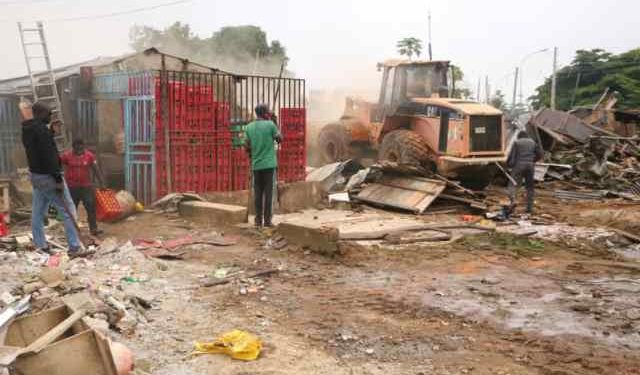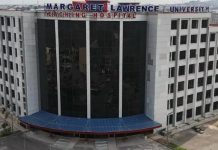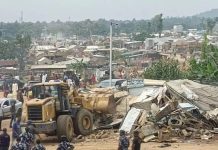Africa Press-Nigeria:
The Federal Capital Territory Administration (FCTA), on Saturday demolished over 134 houses at Apo Akpmajenya indigenous community to pave way for the construction of a major road network in the area.
The exercise was coordinated by the FCT Task Force on City Sanitation, under the leadership of Mr Ikharo Attah.
Briefing newsmen shorty after the exercise, Malam Muktar Galadima, the Director, Department of Development Control, explained that the community was earlier marked for demolition since January, 2020.
Galadima also said that prior to the demolition, the FCTA through its relavant agencies, had interface with the inhabitants of the settlement on the need for them to vacate the area which falls under the corridor of the planed outer Southern Express Way (OSEX).
He said the community falls on one of road interchanges linking Oladipo Diya, which is an arterial road with the outer Southern express way.
On his part, Malam Nasir Suleiman, the Deputy Director, Planning and Resettlement, Department of Resettlement and Compensation, said 131 houses and 169 plots were given for compensation to the members of the affected Akpmajenya indigenous community.
Suleiman also said that the FCT administration had provided a plot of land for Chief house, comprehensive development and commercial plots, adding that most of them have already moved to Apo Resettlement Scheme.
The deputy director, however, said that a few of them were yet to move.
He explained that the policy of Federal Capital City (FCC) was to resettle all the indegeous settlement within the FCC to the Federal Capital Territory which is outside the FCC.
Also speaking, Malam Baba Lawan, the Director, Abuja Environmental Protection Board (AEPB), said that the village constitutes a lot of environmental nuisances and monumental waste generation.
Lawan added that on daily basis trucks of waste generated from the village are carted away from the community to the central dump side.
According to him, the village is consist of around 80 per cent commercial activities because is not a traditional Gbagi village as we are aware.







